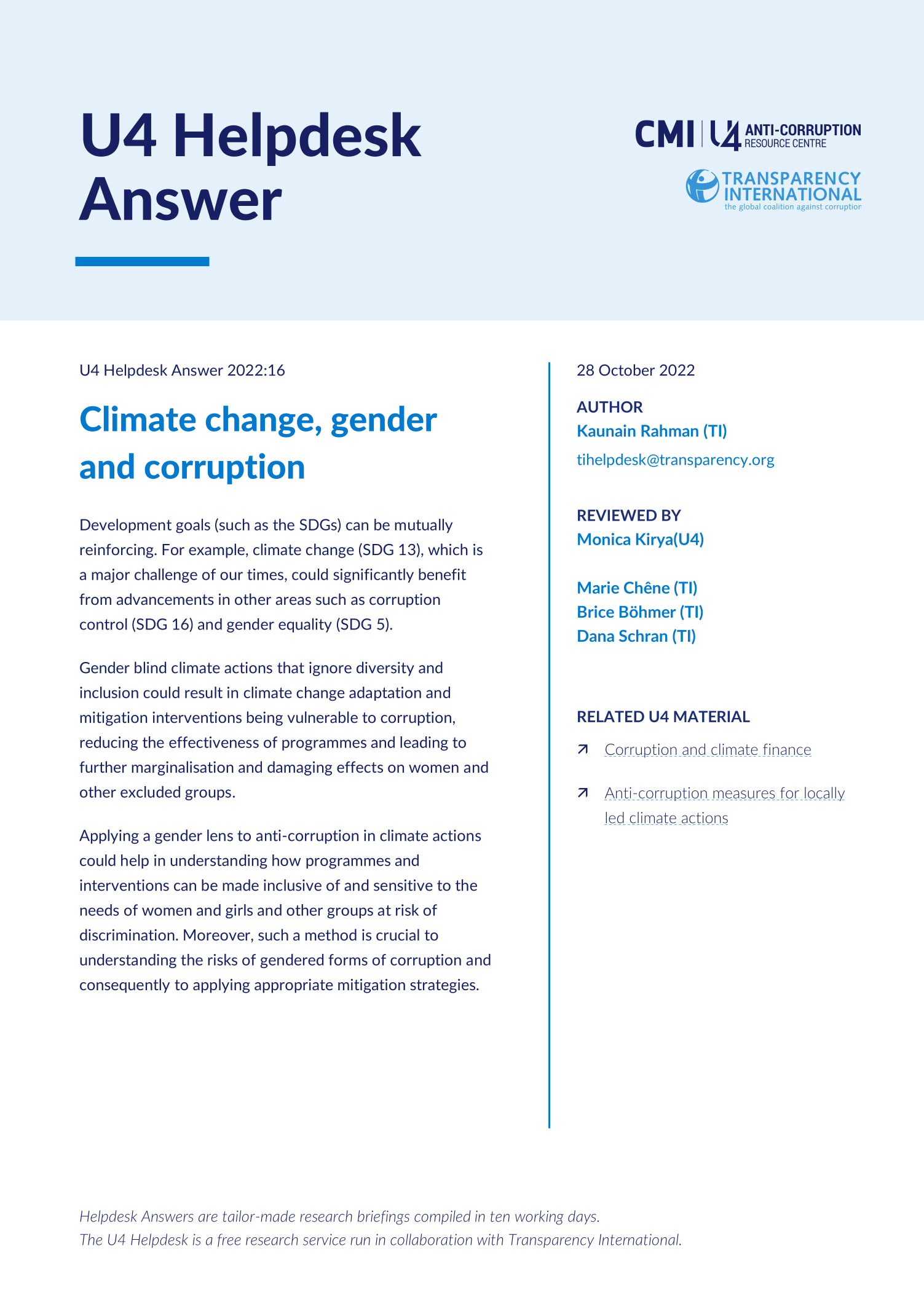Main points
- Interventions aimed at climate change, gender equality and anti-corruption can be mutually enforcing.
- Gender transformative approaches (GTAs) aim to address imbalanced power dynamics that feed corruption and discrimination cycles.
- Applying a gender lens to anti-corruption processes aimed at climate actions, could make them more inclusive of and sensitive to the needs of women and girls and help to address gendered forms of corruption such as sextortion.
- Anti-corruption efforts can be made gender responsive by including women in anti-corruption interventions, using social audits on women’s access to services, recognising and addressing gendered forms of corruption, such as sextortion, and having gender sensitive complaint mechanisms, among others.


